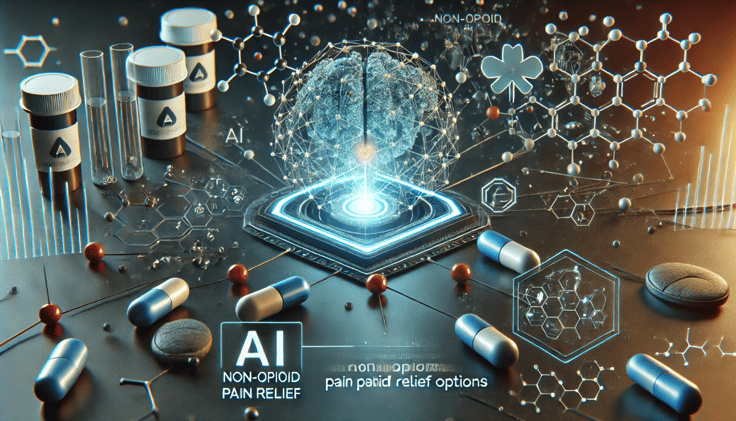AI-Driven Breakthroughs in Chronic Pain Management
A Persistent Problem: Chronic Pain Affects Millions
- Approximately one in five Americans suffer from chronic pain
- Current treatment options often fall short of providing relief without significant side effects
Chronic pain is a pervasive issue that affects millions of people worldwide. The need for effective and non-addictive treatments has driven researchers to explore innovative approaches, including the use of artificial intelligence (AI).
AI-Powered Drug Discovery: A New Frontier
- Cleveland Clinic’s Genome Center Director Dr. Feixiong Cheng and his team have partnered with IBM to develop AI-powered tools for identifying new pain relief options
- The researchers utilized a deep-learning AI framework to repurpose FDA-approved drugs and gut microbiome-derived metabolites as non-opioid alternatives
The partnership between Cleveland Clinic and IBM has led to significant breakthroughs in pain management. By leveraging the capabilities of AI, Dr. Cheng’s team has identified several compounds that target pain receptors without the risk of addiction or severe side effects.
Understanding Pain Receptors: A Key to Non-Addictive Relief
- Researchers have shown that targeting G protein-coupled receptors (GPCRs) may provide a pathway to non-addictive pain relief
- The challenge lies in figuring out how to target these receptors effectively
Dr. Yunguang Qiu, a postdoctoral fellow in Dr. Cheng’s lab, emphasizes the importance of understanding how pain receptors work. By identifying effective targets, researchers can develop new treatments that minimize the risk of addiction.
Repurposing Existing Drugs: A Faster and More Accessible Approach
- Instead of developing new molecules from scratch, Dr. Cheng’s team focused on existing FDA-approved drugs
- They aimed to identify metabolites from the gut microbiome that could potentially target pain receptors
By repurposing existing compounds, researchers can rapidly test and validate new therapies. This approach also reduces the need for extensive resources and time.
LISA-CPI: An AI Tool for Predicting Compound-Protein Interactions
- The team developed an AI tool called LISA-CPI to predict how molecules interact with pain receptors
- LISA-CPI uses deep learning to predict:
- Whether a molecule can bind to a specific pain receptor
- Where the molecule will attach to the receptor
- The strength of the molecule’s attachment
- Whether binding the molecule will turn receptor signaling on or off
LISA-CPI has proven to be an invaluable tool in the discovery process. By rapidly predicting compound-protein interactions, researchers can identify potential therapeutic targets with greater accuracy.
Promising Results and Future Directions
- The team analyzed 369 gut microbial metabolites and 2,308 FDA-approved drugs interacting with 13 pain-associated receptors
- Ongoing lab studies aim to validate the findings and explore new applications for LISA-CPI
The success of LISA-CPI has opened doors to new possibilities in drug discovery. By expanding its capabilities, researchers can develop innovative treatments for a range of health issues.
Expanding AI’s Role in Drug Discovery
- Dr. Cheng sees the success of LISA-CPI as just one step in their collaboration with IBM
- The team is working on novel drug discovery projects using AI to create small molecule foundation models
As AI technology advances, it will likely open new doors for pain management and therapeutic discovery. By embracing this technology, researchers can transform the healthcare landscape in the years to come.
Conclusion: A New Era in Pain Management
- The use of AI in drug discovery offers new hope for treating chronic pain without the risk of opioid addiction
- By repurposing existing drugs and identifying gut microbiome-derived compounds, researchers can rapidly test and validate new therapies
The future of pain management is bright. With the help of AI-powered tools like LISA-CPI, researchers can develop innovative treatments that minimize the risk of addiction and side effects.
By embracing this technology, we can create a more compassionate and effective healthcare system for all.












